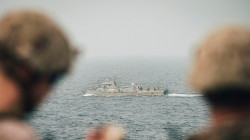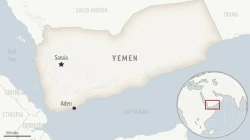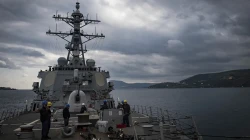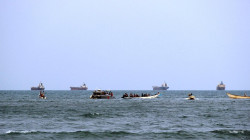Escalating tensions in Red Sea: Undersea cable disruption adds to maritime navigation crisis
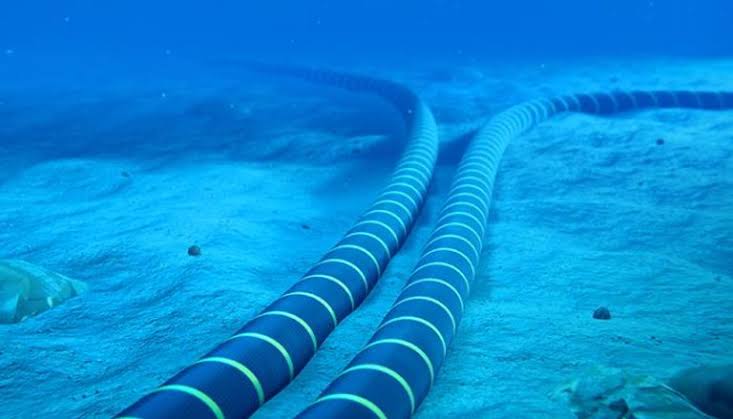
Shafaq News / The Red Sea region has been plunged into a new crisis with the announcement by an international telecommunications company on Thursday regarding the targeting of undersea cables in the area, adding to the tensions in maritime navigation that have escalated since November 19th last year due to Houthis’ attacks.
Experts in Yemeni affairs, telecommunications, and maritime shipping separately viewed the targeting of undersea cables in this tense region for months as a "new battle with pressure tactics imposed by the parties, warning of the outbreak of war as long as the Houthis do not cease."
Two days ago, Hong Kong-based "HGC Global Communications" announced the disruption of three global communication and internet cables passing through the Red Sea waters, as reported by the Associated Press.
The same company clarified that the cable disruptions affected 25% of the data flow from Asia to Europe through those cables, indicating the initiation of data flow redirection without blaming anyone for the disruption. This occurred amid Houthis’ denials and Israeli accusations.
Since November 19th last year, ships in the Red Sea have faced repeated Houthi attacks with missiles and drones, claiming to demand a halt to the Gaza war.
On February 18th, another Houthi threat emerged after the US Central Command (CENTCOM) announced the destruction of a Houthi drone submarine, days after intercepting a shipment of weapons from Iran to the Houthis.
The incident comes weeks after the legitimate Yemeni government warned of the possibility of the Houthis targeting the cables in that international maritime passage. It also follows days after the sinking of the Belize-flagged commercial ship Rubymar, on Saturday, following Houthi shelling in mid-February.
"Bloomberg" quoted Ryan Wopschall, the general manager of the International Committee for the Protection of Undersea Cables Damaged by Houthi Attacks, as saying that "Houthi shelling likely caused the ship's anchor to fall, damaging cables near its underwater location."
The armed groups continue to reap significant revenues from international companies managing these undersea cables, exploiting their control over the Ministry of Communications and Information Technology in Sanaa.
The Houthis (also known as Ansarallah) have been launching frequent drone and missile attacks on international commercial ships in the Gulf of Aden since mid-November. They claim solidarity with Palestinians facing Israel's actions in Gaza.
These near-daily assaults have compelled companies to redirect their ships through longer and more expensive routes around Africa, sparking concerns about potential destabilization in the Middle East amid the ongoing conflict between Israel and Hamas.
In response to these attacks, the United States and Britain have targeted Houthi assets.
The impact of the Houthi decision reaches halfway to the Bab el-Mandeb Strait, a 20-kilometer-wide passage that serves as the gateway to the Red Sea. Approximately 15% of global shipping traffic transits through this strait to and from the Suez Canal.
Despite many Western accusations suggesting Iran influences Houthis to target vessels, both Tehran and the Yemeni group deny such claims. Iran asserts that Ansarallah makes independent decisions, akin to other movements in the "Axis of Resistance," which includes Lebanon's Hezbollah, Iraqi factions, and others.
All groups within the Axis have declared that their attacks will persist until a ceasefire is achieved in the Gaza Strip, where Israel's actions have resulted in the deaths of over 30,000 Palestinians, predominantly children and women.
The Israeli aggression has also displaced approximately 1.5 million people, leading to the destruction of infrastructure, hospitals, schools, and even UN facilities.
The United Nations reports that the Gaza Strip is currently experiencing famine conditions, exacerbated by Tel Aviv's rejection of humanitarian aid through Rafah.
Tragically, dozens of children, including newborns in Gaza have died of hunger so far.
